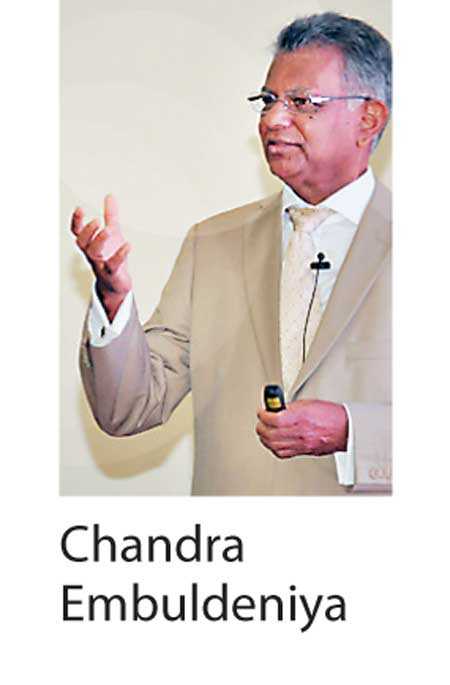Tuesday Feb 17, 2026
Tuesday Feb 17, 2026
Wednesday, 25 July 2018 00:00 - - {{hitsCtrl.values.hits}}

National Human Resources Development Council (NHRDC) Member Dr. Chandra Embuldeniya yesterday advocated sweeping reforms in Sri Lanka’s education sector, insisting that education needed to be aligned with economic goals and targeted at creating more employable workers.
Presenting the key findings of three years of research, Dr. Embuldeniya noted that a resource gap existed between schools under the Central Government and provincial councils. Only about 350 schools were under the Central Government, which made them much sought after while over 9,500 schools in the provinces were given limited access to resources or well-trained teachers. He also pointed out that despite billions of rupees being allocated to public education, a significant mismatch existed between graduates and growth areas of the economy including key services such as healthcare.
“More than 52% of our graduates are arts students. About 19% are commerce graduates but only 9.6% are from science, 4.9% are engineers and only 3.7% are doctors. It is clear we need to understand how our public money is being spent at the tertiary and higher education level and whether it is resulting in the best gains for our economic needs. We need to change the system to give people skills that are useful,” he said, highlighting data gathered from 30,819 graduates in 2016.
He also pointed out that despite significant public spending, admissions at public schools were dwindling as parents sought higher quality education for their children. Higher education and vocational training schools were also not faring much better with some having dropout rates as high as 30%, he said, advocating that when public funds were allocated they must also monitor student performance.
Dr. Embuldeniya also lamented the lack of readily available data on Sri Lanka’s widely varied education sector, insisting that policy implementation needed to be more data-driven if it was to meet economic goals. He also called for the private sector to be encouraged to become an education provider by giving access to public funds, creating a one-stop shop for education-related investments, introducing a voucher system so all students could get public funds that would partly pay for them to get education at an institution of their choice and improve access to finance so students could obtain loans. He also supported public-private partnerships to rapidly expand quality education across the country.
“Our education system has become focused on academic outcomes rather than on outcomes that are based on behaviour. We have to change the ideologies of people, encourage career guidance counselling, promote staff development, allow high quality international academics in Sri Lanka and give international accreditation,” he said.
He also called for university education to begin six months after Advanced Level exams and allow public universities to absorb foreign students up to 5% of their intake.
One aspect that was looked at in the research was to improve female participation in the workforce which called for legal reforms, human resource policy interventions and incentives for the private sector to hire more women.
“We also looked at how to reduce productive workers becoming three-wheeler drivers. It would be good to set up a talent corporation with the private sector to mainstream relevant jobs, reskill existing drivers to enter the tourism services industry and develop an employment value proposition for them in different sectors.”